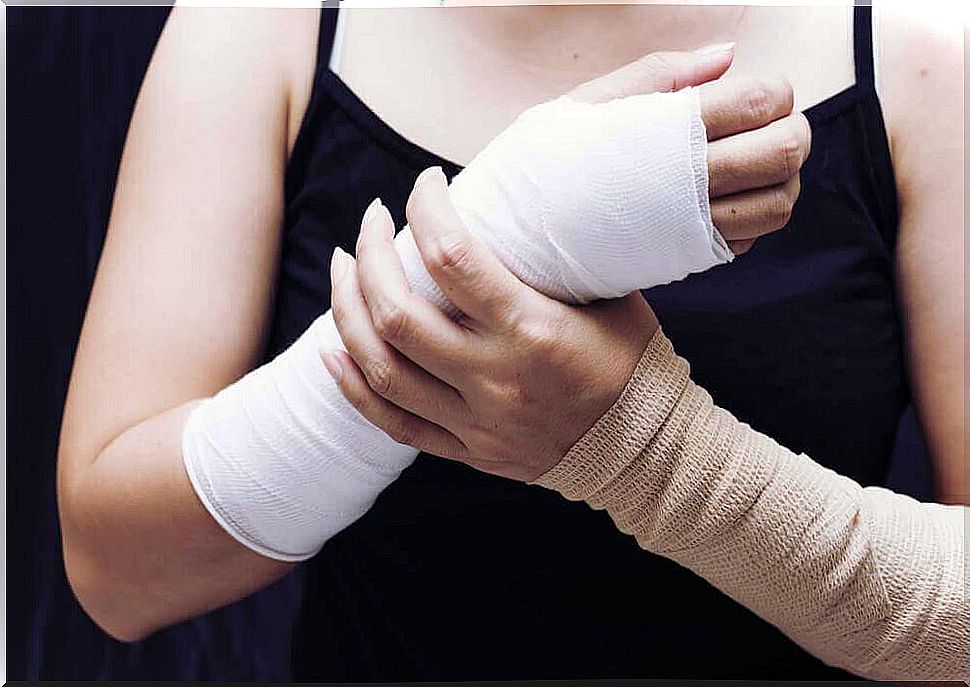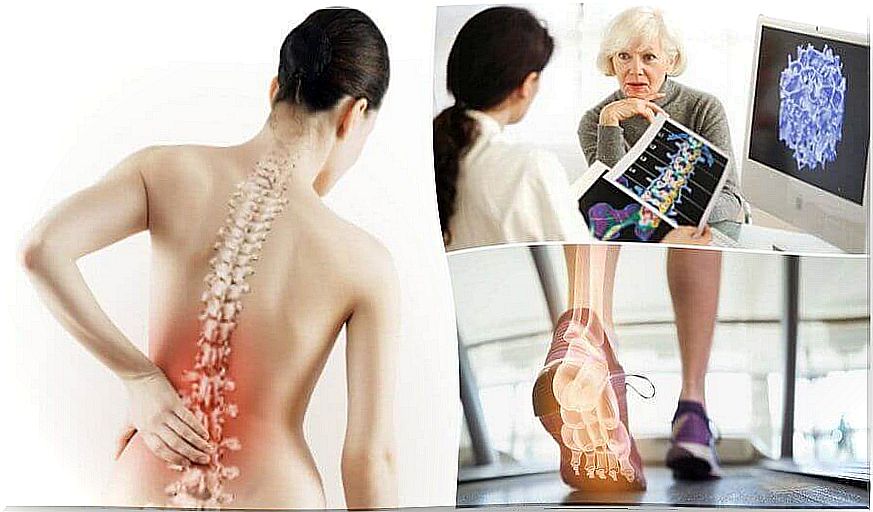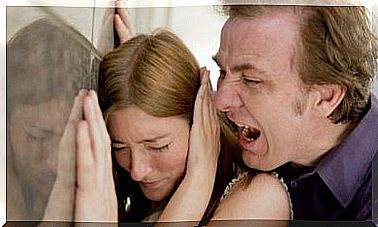8 Triggers For Upper Back Pain
The back is made up of bones, ligaments, nerves, muscles and joints. Upper back pain is common because this part of the body is extremely complex.

Upper back pain is common. They mainly occur in the area of the shoulder blades.
The shoulder blades are behind your shoulders, at chest level. They are the connection point for muscles and tendons.
The back and shoulder blades are an extremely complex structure. Hence, upper back pain is common. In some cases it can be attributed to simple fatigue.
But if the pain is long-lasting and very severe, it can also be a sign of a more serious illness.
Work, study, obligations and housework can put a lot of strain on your back. Most of the time, we don’t even think about what work our shoulders do for us every day.
In this article, we will show you possible causes for your back pain.
Reasons for Upper Back Pain
1. Bad posture

Having good posture is extremely important to the health of your back. This is because the shoulder blades are connected to the tendons and are excessively stressed by poor posture.
In addition, lack of sleep or holding uncomfortable poses can hurt your back in the long run.
But how do you find out if you have good posture or not?
- Stand with your back against a wall.
- Touch the wall with your head, buttocks and especially with your shoulders.
- If you can put your hand between the wall and the curve of your middle back, you are standing correctly.
2. Bad diet

An unbalanced diet weakens muscles. This mainly happens when you consume too much fat and too few nutrients and vitamins.
The result can be severe back pain, especially in the shoulder blades area.
3. Muscle tension

One of the main reasons for back pain is tension. Excessive strain, the carrying of heavy objects or uncomfortable movements can be the reason.
The shoulder blades are connected to the entire bone system of the body by muscles and tendons. Therefore, when we feel tension, it often translates into pain in the shoulder blades area.
4. Heart problems

One of the more serious causes of back pain can be an aortic dissection. This is an injury to the artery that supplies blood to the heart. It can therefore be life threatening.
Symptoms include pain in the upper back as well as lower back. If you experience sudden, severe pain, you should therefore call a doctor as soon as possible.
5. Broken bones

In order to fracture the shoulder blade, it takes a fairly strong impact.
However, a fracture of the shoulder blade or a tear in the surrounding tendons immediately causes intense pain. An accident of this magnitude must be treated by a doctor, because in the worst case it can be fatal.
6. Arthritis

Arthritis is particularly common in the elderly and affects the joints.
If you have arthritis, your joints become inflamed and the pain gets worse over time. It occurs mainly when moving.
In some cases, lumps or even deformations form over the shoulder blades.
7. Osteoporosis

In osteoporosis, the bones lose their internal strength. This weakens them and causes pain, especially in the arms and backbone.
The bones can also become so thin that the shoulder blade can break.
8. Cancer

While this is not a particularly common diagnosis, it is possible that the pain in a shoulder blade is caused by a tumor. For example, if the tumor is in the upper part of the lungs, that is where the pain is causing.
Such pain is intense and remains constant. It can also get worse at night or while lying down. If you experience such symptoms, you should definitely see a doctor and tell them about them.
Treat back pain
There are many ways to treat back pain and depend on the strength and causes of the strength. They include, for example, physical therapy, medication, or changing your habits.
Surgical intervention is only carried out in very severe cases after medical advice.
Tips
- Eat a balanced and healthy diet.
- Get enough exercise. Try yoga because it strengthens your back muscles and improves your posture.
- Physical therapy, targeted exercise, and back massages can also help.
- Avoid stressful situations and allow yourself enough rest.
- Try to change your posture from time to time as you work.









